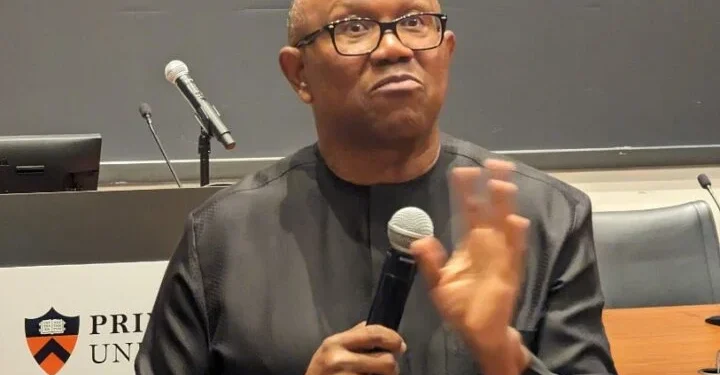Peter Obi, former presidential candidate, has raised concerns about the scheduling of the 2025 Unified Tertiary Matriculation Examination (UTME). Obi criticized the Joint Admissions and Matriculation Board (JAMB) for setting early start times for the examination, arguing that it endangers the lives of young students.
In a statement released on April 27, 2025, Obi expressed his worry over reports that teenagers, typically aged between 15 and 17, are being required to arrive at examination centers as early as 6:30 am. He pointed out that these teenagers are forced to travel during early hours, often in the dark and through dangerous or unfamiliar routes, just to exercise their right to education. Obi condemned this practice as “reckless,” highlighting the potential risks it exposes students to, including road accidents, abductions, and psychological trauma.
The former Anambra state governor raised the question of accountability, asking, “Who takes responsibility when a 15- or 16-year-old child disappears or is harmed while trying to access their right to education?” He noted that the situation is indicative of broader systemic challenges within Nigeria’s education sector, especially the inadequacy of infrastructure.
Obi also compared Nigeria’s education infrastructure to that of Indonesia, a country with a significantly higher number of universities and a more equitable spread of educational institutions across its regions. He argued that with over 200 million people and just about 200 universities, Nigeria’s education system is insufficient for its growing population, unlike Indonesia, which boasts more than 4,000 universities for its population of around 280 million.
In his statement, Obi called on the federal government to invest more significantly in education, noting that increasing the number of universities in Nigeria—ideally to 2,000—would reduce the risks to students and improve access to education. He emphasized that education is crucial for national development and should not be regarded as a luxury or expense. He urged the government to take deliberate steps to expand Nigeria’s education system in line with the country’s demographic growth.
Obi concluded by emphasizing that young people should not be put in danger for simply seeking an education. He stated, “Our young generation should not be endangered because they desire education. We must do better.”
In response to Obi’s criticism, the Joint Admissions and Matriculation Board (JAMB) issued a statement attempting to clarify the situation. The board explained that the early times refer to pre-test verification procedures, not the actual examination start times. However, JAMB did not address concerns regarding the safety of students who must travel long distances to reach their exam centers.
The debate continues amid reports of students going missing during their commute to UTME centers. For instance, a teenage girl was recently reported missing after traveling to an exam center in Ajah, Lagos, highlighting the very risks Obi had criticized.
The conversation around the scheduling of the UTME and the safety of students is part of a larger discourse on how to improve Nigeria’s education system, ensuring that it not only expands in size but also becomes safer and more accessible for all students across the country.


















































































 EduTimes Africa, a product of Education Times Africa, is a magazine publication that aims to lend its support to close the yawning gap in Africa's educational development.
EduTimes Africa, a product of Education Times Africa, is a magazine publication that aims to lend its support to close the yawning gap in Africa's educational development.